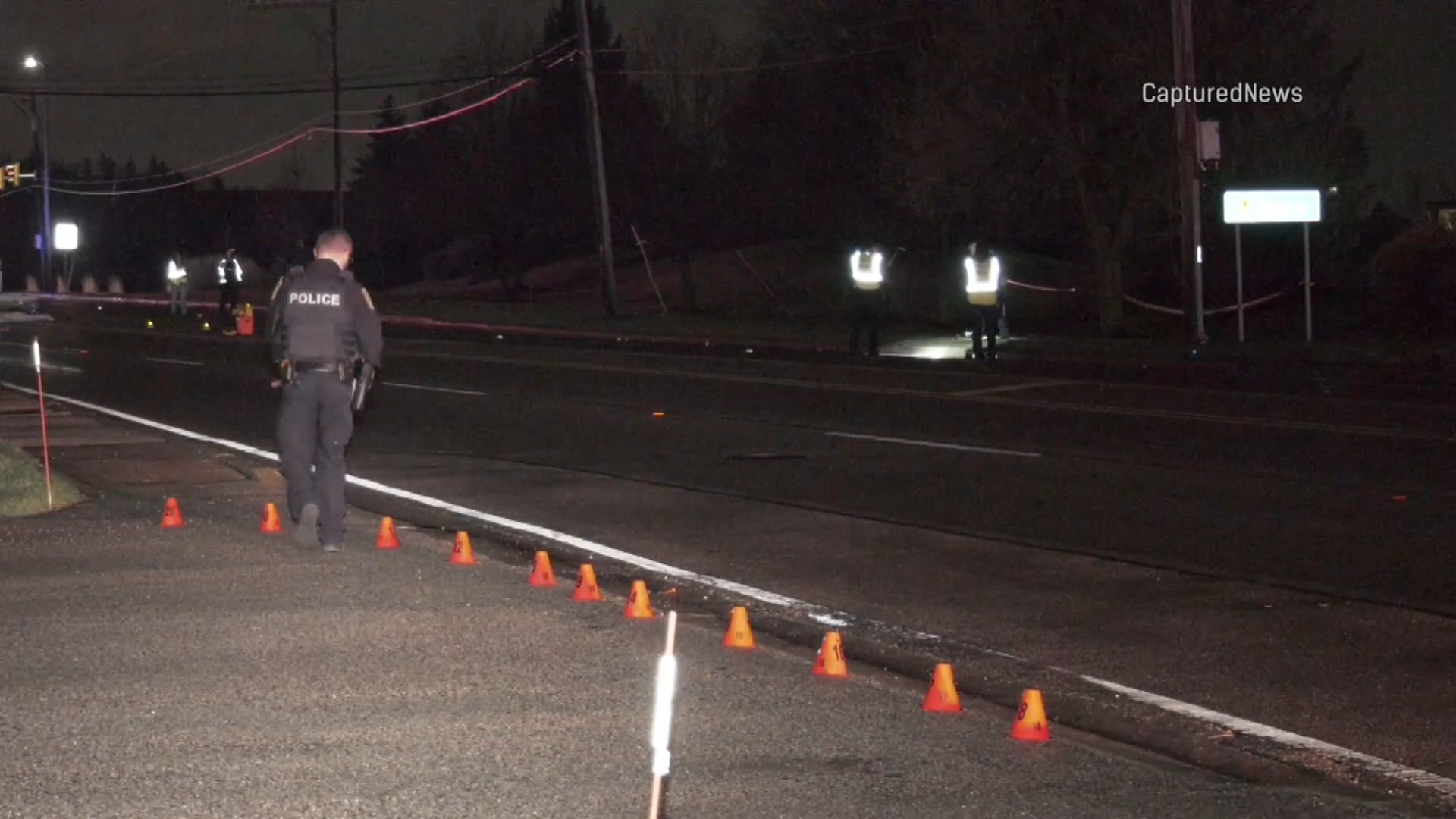Confused by the barrage of ads from companies wanting to dissect your personal tastes/family history/longevity/health based on a simple sample of your DNA? Phil Rogers reports.
Confused by the barrage of ads from companies wanting to dissect your personal tastes/family history/longevity/health based on a simple sample of your DNA?
You’re not alone. Depending on which company is vying for your attention, you might be tempted to learn more about your ancestors, your diet, your workout regimen, the best position for your child to play in sports, even which wine you prefer.
NBC 5 Investigates ordered up a random set of the tests, submitting one reporter’s DNA for analysis.
That one reporter --- was me, Phil Rogers.
What I learned is that my ancestors almost certainly came from Ireland, or Scotland. Or maybe western Europe. Possibly Scandinavia. And that today, my genetic markers come back to Kuwait. And Peru. Even Qatar and Afghanistan.
Wait, what? I have relatives in Afghanistan?
Maybe not. Depending which test you take, you need to look closely what it’s offering.
Local
Take the granddaddy of them all, Ancestry.com. Their report told me my ancestors were most likely (36 percent) from Ireland, Scotland, and Wales. Coming in second (32 percent), was Scandinavia. Third was western Europe (26 percent).
My Heritage DNA flipped that script. Their number one choice was north and western Europe (66.2 percent). Great Britain came in second (18 percent). And while Ancestry liked Ireland as a first choice, with My Heritage, the Emerald Isle came in third (15.8 percent).
So what gives?
Rafi Mendelsohn of My Heritage suggested the differences may lay in the software.
“The algorithms with which companies build the ethnicity databases,” he said. After more than a decade in the family history business, he says his company started its DNA operations by building a library of markers from a raft of countries.
“We DNA tested 5,000 people around the world,” he says. “With each area there are specific genetic markers.”
Mendelsohn said his company is confident of its results, because of the underlying data they use.
“We have 42 ethnicities,” he said. “My Heritage is the most global family history company.”
In a statement, Ancestry.com likewise suggested different approaches may explain different results.
“We’re confident in the science and methodologies that lead to the insights we give customers, and strive to explain the uncertainty inherent in the statistical approaches on our website,” the statement said.
Conceding it’s the “early days for consumer genomics,” Ancestry echoed My Heritage’s contention that underlying data is key.
“One of Ancestry’s accuracy advantages comes from combining the world’s largest DNA network of more than 7 million people with more than 10 billion historical records, and 100 million family trees.”
And remember, those are just your long lost relatives.
Another company, Home DNA, promises to tell you where your genetic markers show up in the world today. In my case, that was Kuwait, Ireland, Austria, and Afghanistan, with places like Peru and Guyana coming in a distant second.
Their sister company, Connect My DNA, came up with similar results. In their test, my markers came back first to Ireland, Austria, and Scotland, then Peru, Guyana, and Nicaragua.
“That’s one of the earlier tests that was offered,” Home DNA’s Dr. Michael Baird told NBC 5. “Most of the tests today are more advanced.”
He says his company looks at more than 40 population groups. And emphasized that Connect My DNA is not designed to track down your ancient relatives.
“It’s not intended to be an ancestry test,” he said. “It’s looking at your markers, compared to populations around the world.”
Dog vs. Human
At this point in our story we should also note that we submitted another set of samples from another individual to several of the companies. But this individual, Bailey, is not your usual customer. In fact, she’s not even human.
She’s a Labrador Retriever.
“You set the bar pretty low,” Dr. Baird laughed. “These tests are human specific!”
Indeed, his company kicked Bailey’s test back as unreadable, as did most others. But one, Orig3n DNA, which offers a “Superhero” test for strength, intelligence, and speed, failed to note that Bailey was not human.
Instead, after we submitted the $29 test, the company sent a 7 page report, saying that her muscle force would probably be great for quick movements like boxing and basketball, and that she has the cardiac output for long endurance bike rides or runs.
They did advise she might want to work with a personal trainer.
Health Research
Orig3n did not respond to our phone calls and emails seeking comment on why they did not detect that Bailey was a dog. But some experts in the field suggested all home kits should be approached with a wary eye.
“The majority of genetic testing is still a gray area and there’s always the possibility of uncertain results,” said Jessica Stoll, a genetic counselor with the University of Chicago Hospitals. Stoll said consumer tests for ancestry and the like are fine and can be fun for entertainment value. What concerns her are more serious tests, some FDA approved, which offer to check tendencies for serious diseases like Parkinson’s disease or Alzheimer’s.
“I don’t find them particularly useful, and in some cases I can actually find them harmful,” she said. “We use very specific clinical tests to determine if there is a very specific gene mutation or a change in a gene that’s increasing a person’s risk.”
She emphasized genetic markers alone don’t tell the whole story.
“If we’re going to do any testing, we need to base it on your personal and family medical history,” she said.
Debra Duquette, a genetic counselor at Northwestern University’s Feinberg School of Medicine agrees.
“Genetic testing is very complex,” she said. “Health care involvement needs to be right there, first and foremost.”
She is especially wary of any test involving children. Why, she asks, would a parent want to give their child a test involving their acumen at playing sports?
“I would hate for anyone to have a genetic test that then discourages them from doing something they want to do in life,” she said.
UCLA geneticist Dr. Wayne Grody agrees. He is not a fan of home tests. Especially those involving health.
“It’s not very hard science---maybe it will get better,” he said. “I’d be taking them all with a grain of salt!”
While he conceded that some ancestry tests are probably “getting better”, Grody cautioned that the level of sophistication for all home kits still falls short of what is usually approached in the medical world.
“There might be some vague truth, but those are vague assumptions,” he said. “It’s really like the patent medicines of a hundred years ago.”
It’s important to note that many of the companies offer much more than DNA information. Several gave me names of likely matches to unknown relatives. Ancestry accurately showed the migration of my ancestors to Oklahoma, and their site offers links to census and other documents.
“We tell customers throughout the product experience that their results are as accurate as possible for where the science is today, and that they may evolve over time as the resolution of DNA estimates improve,” Ancestry said in their statement. “Your DNA does not change, our science does.”
As for Bailey, her owner said the Superhero report gives her new inspiration.
“Westminster Dog Show, here we come!”



